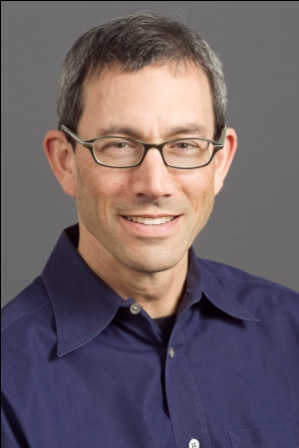Funding agencies spotlight importance of plant research, commit for future
By Karyn Houston
Decision makers at two of the largest biomedical funders in the world made a huge statement earlier this year when they gave millions of dollars and carte blanche research freedom to 15 plant biologists, including one from UC Berkeley.
“Plants impact medicine, energy, food and the environment,” said Vicki Chandler, Chief Program Officer for the Gordon and Betty Moore Foundation. “It’s such an important area that has been historically underfunded. Plants are critical to understanding huge societal issues over the next decade, and ironically agencies are cutting fundamental plant research.”
Dr. Krishna K. Niyogi of the department of Plant & Microbial Biology, in the College of Natural Resources at UC Berkeley, will get five years of full support, with possible renewal for an additional five years. The Howard Hughes Medical Institute and the Moore Foundation are investing a combined total of $75 million in the new plant science research program over the next five years.
The appointment will pay Niyogi’s UC salary and provide a generous research budget with few strings attached. Researchers from UC Davis, UC San Diego, UC Riverside and other institutions nationwide were funded as well.
“It’s an amazing thing,” Niyogi said, and one of the most unusual things about the appointment is that it is completely unrestricted, and open-ended. “There’s nothing else like it.”
The focus of the new initiative was on people, not projects, said Jack E. Dixon, vice president and Chief Scientific Officer of the Howard Hughes Medical Institute. The researchers are not required to focus on a specific topic or outcome.
“The premise of investigator awards is identifying the researchers who are the most innovative,” Chandler said. “It was the view of the evaluators that Dr. Niyogi was one of the top 15 people in this country working on plant biology.”
“The money we give them extends the current line of research they are doing, gives them the freedom to explore new avenues and perhaps make a startling new discovery and pursue something completely different,” Dixon said. “That’s the essence of the award.”
The takeaway message from the group is that applications and nominations in plant sciences will get more funding from the Howard Hughes Medical Institute in the future.
Emphasis on Plants by Medical Advisory Board
“Every member of the medical advisory board thought putting emphasis on plants was very important in our organization,” Dixon said. “We think we’ve raised the profile in the plant community. Doing this sends a message that we’re interested in basic plant research. By having a dedicated competition, and partnering with the Moore Foundation, we’re letting everyone know.”
Howard Hughes Medical Institute and plant research did not intersect in the past, Chandler said. “But plant research is key. We hope to get more interest from plant scientists in the future.”
“We recognized the issue” of historic underfunding, Chandler said of the Moore Foundation’s stance on plant research. “It is an important niche to identify critically important fields that have strong scientists in them, but are dramatically underfunded. The consensus is that the plant biology field really met the criteria. It is dramatically underfunded relative to other areas of biological science.”
University of California researchers received 5 of the 15 prestigious appointments.
That’s because the UCs – and the other universities awarded – have place a huge emphasis upon, and dedication to, plant research, Dixon said.
The reputation of an outstanding Plant and Microbial Biology Department like UC Berkeley’s has not suffered too greatly in the face of grim and severe budget cuts, Dixon said.
“Budget cuts from the state reflect state budget realities. It doesn’t in any way reflect on the quality of the university,” but it’s very important the university continue to maintain its commitment to recruiting top faculty and students, and supporting cutting-edge research, said Dixon, who also is a professor at UC San Diego.
UC Dominated in Competition
“The representation of UC institutions among the award winners demonstrates how successful our campuses have been in fostering an environment where the best scientists can develop creative and novel ways to investigate critical biological processes associated with plant genetics, development and function,” said Chelsea Specht, Associate Professor in Plant & Microbial Biology at UC Berkeley.
“It also demonstrates the quality of education and training opportunities that are available to the students of the State of California in their public institutions. Kris Niyogi contributes substantially to the training of graduate and undergraduate students, providing them with a unique opportunity to participate in and contribute to research in what HHMI has now recognized as one of the top research programs in plant biology in the nation,” Specht said.
The Niyogi lab has made fundamental discoveries in photosynthesis and the ways plants use light. Niyogi has elucidated the trade-offs plants make during photosynthesis by studying an alga and a flowering plant so distantly related that their last common ancestor lived hundreds of millions of years ago.
The group bred thousands of plants and algal colonies and looked for genetic mutations that appeared to affect photosynthesis. They probed for anomalies in how the plants coped with too much or too little light, and ultimately identified the first known mutants relevant to a process called nonphotochemical quenching in both species.
This eventually led to the identification of critical proteins, such as PsbS and LHCSR, that are involved in the regulation of photosynthesis.
Current research in the Niyogi Lab focuses on four major projects:
- Assembly of Photosynthetic Reaction Centers
- Structure and Dynamics of the Photosynthetic Membrane
- Regulation of Photosynthetic Light Harvesting by Nonphotochemical Quenching
- Light Stress Acclimation and Signal Transduction
In the future, Niyogi plans to build on their basic research by trying to improve the efficiency of photosynthesis. Niyogi also teaches a popular undergraduate course in Phycology, the study of algae.
